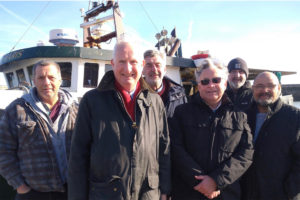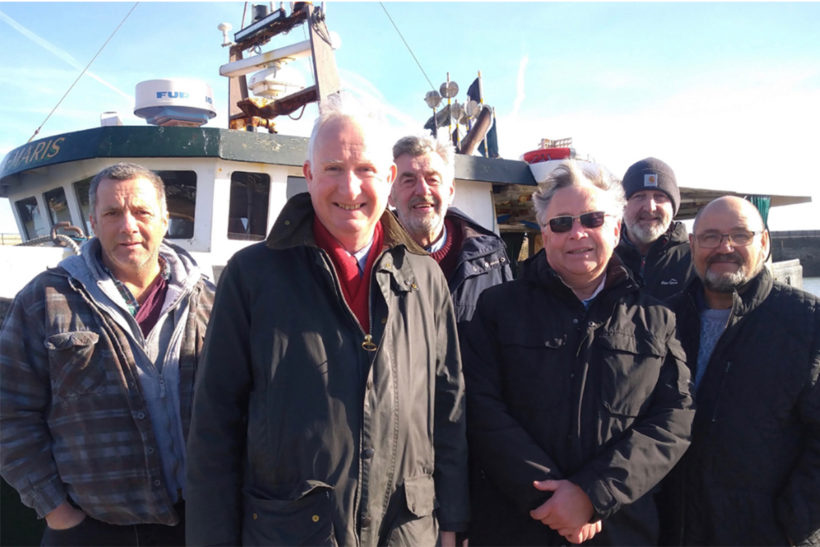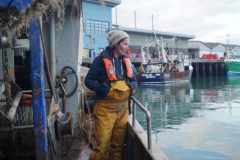Writing ahead of last week’s Westminster fisheries debate, Daniel Zeichner, Labour’s shadow food, farming and fisheries minister, sets out his priorities on support for the industry
The identity of the new fisheries minister has not yet been confirmed.
Whoever it is, they face a daunting inbox, but frankly, the Conservatives only have themselves to blame.
Raising false hopes is always a dangerous game, and the Brexit UK/EU Trade and Co-operation Agreement was rightly condemned by the British fishing industry for laying bare the ‘hollowness of the government’s rhetoric’, with quotas and access ‘very far from what any self- respecting independent coastal state would expect’.
The export trade to the EU has been beset by home-grown red tape, which turns out to be even more frustrating than EU red tape. Rocketing fuel costs have only piled on the financial pressure.
The fishers I’ve spent the last few months listening to – from West Mersea, to Brixham, to Ramsgate, to Hull – are impressive hard-working people doing a job they love, but all too often they’re up against a system which is just not on their side. Whether it’s the ludicrous Catch App, or safety modifications which turn out to make boats less, not more, safe, their real-world experience seems to count for little.

Daniel Zeichner (second from left) with NFFO chair Paul Gilson (fourth from left) and fishermen from Ramsgate – one of the series of meetings he has held with fishermen around the country this year.
There’s been plenty of law-making. The Fisheries Act set the structure, the Inshore Fisheries and Conservation Authorities (IFCAs) are busy setting rules, and Fisheries Management Plans will play an important role. But the big overall questions around the future of our fishing industry remain.
Everything is piecemeal. There is no vision for the next 25 years. The Conservative approach to trade deals and negotiations with countries in distant waters is simply too often naive and amateurish compared to our long-experienced and wily competitors.
The Conservatives are happy to let the oil and gas giants carry on piling up their windfall profits, but it is the fishing sector and other fuel-using businesses forking out. Whether it’s fuel for boats at sea, or for trucks to processors or to market, everything costs more. Fishing businesses are used to tight margins, but without a coherent long-term plan, my fear is that the current government will allow more of them to fail.
It hardly needs saying that for the industry to flourish, it needs fish, and in some areas the basic lack of fish is the biggest challenge. Meanwhile, government could give more support in other ways.
Safety at sea must continue to be a high priority, and I hope the incoming minister will promote the widespread use of lifejackets with personal locator beacons. Stopping boats rolling dangerously will save lives, but the Maritime and Coastguard Agency’s implementation has been rightly criticised (see here). The new minister must now work with the Department for Transport to change the mindset and amend the system so it keeps people safe – but not by putting them out of business.
The new minister will need to work hard to rebuild confidence after the debacle of the Brexit agreement for UK fishers’ quotas and access. While governments in Scotland and Wales make the case for their own people, the question of how Defra manages to bat for both England and the UK remains unresolved.
Unfair and unsustainable practices by those foreign vessels allowed in our waters – whether it is gill-netters or fly-shooters – must not only be addressed in law, but enforced, and that will be a further test for the new minister.
The industry will need support to reach net-zero emissions, with change handled better than the inshore vessel monitoring system transition for small boats. The spatial squeeze is pressing the fishing sector by both growing environmental concerns and offshore wind expansion. Good dialogue with environmental organisations and sound data can help, but bad experiences with some wind farm developers leave many concerned.
Just as on land, the lack of a long-term spatial framework is a severe failing. Fisheries Management Plans could help, but in some parts of the country, confidence in IFCAs is at rock bottom – the minister will need to move swiftly to address this. In so doing, he or she must listen to those in the North East who remain unconvinced by Defra explanations for the mass die-off of shellfish and crabs.
Fishing communities across our country deserve so much better than the last 12 years of Conservative neglect and false promises. The new minister is inheriting an industry fighting to keep afloat against the rising tide of rocketing fuel costs, new post-Brexit red tape, and unchecked competition from wealthy foreign boat operators.
A Labour government would guarantee action on three priorities for the fishing sector. We would back our British fishing industry and work together to see it get a fairer share of the quota in our waters, with more fish caught in British waters landed in British ports supporting British processing jobs. We would work directly with fishers themselves to deliver dramatic improvements in safety standards. And we would make sure those foreign boats allowed to fish in our waters must follow the same rules as British boats.
So far, prime minister Liz Truss has suggested that government in general is the problem, not the solution. Her government may indeed be a problem. We take a much more positive view of the role of government, and will work with the industry and others to find the solutions needed.
This story was taken from the archives of Fishing News. For more up-to-date and in-depth reports on the UK and Irish commercial fishing sector, subscribe to Fishing News here or buy the latest single issue for just £3.30 here.






